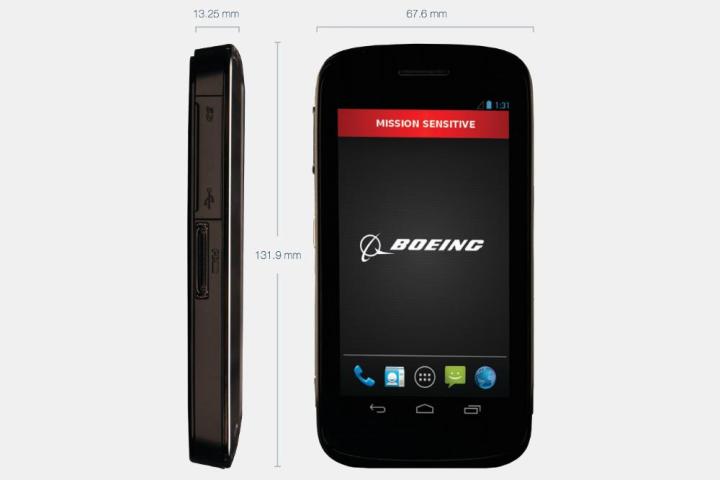
Reports of the ‘Boeing Black’ device have been knocking around for over two years, though with BlackBerry’s announced involvement it seems the project is about to take its next step forward.
The Android device is geared toward those working for government agencies, or any organization where data security is paramount, and is unlikely to get a public release.
BlackBerry boss John Chen confirmed his company’s involvement during a conference call with financial analysts on Friday.
“We’re pleased to announce that Boeing is collaborating with BlackBerry to provide a secure mobile solution for Android devices utilizing our BES 12 platform,” Chen said, adding (presumably with his tongue firmly in his cheek), “That, by the way, is all they allow me to say.”
According to Bloomberg, Boeing has been testing its smartphone with BlackBerry’s BES, the company’s business enterprise server product that helps large organizations manage their employees’ mobile devices in a secure environment.
‘Pursuing a number of opportunities’
Boeing spokesman Andy Lee told Bloomberg the two firms are “pursuing a number of opportunities….to help [BlackBerry] ensure the BES 12 operating system is compatible with, and optimized for use by, the ultra-secure mobile devices favored by the defense and security community.”
Boeing Black
While many media reports have described Boeing’s phone as having the ability to “self-destruct” if tampered with, banish from your mind images of dramatic explosions or meltdowns. It appears that if this particular device gets in the wrongs hands, it merely erases all of its data.
An FCC filing published earlier this year elaborated: “Any attempt to break open the casing of the device would trigger functions that would delete the data and software contained within the device and make the device inoperable.”
According to Boeing, the phone can be configured to link with biometric sensors or satellites, and an array of attachments allow it to extend battery life and utilize solar power.
Details released earlier this year revealed a 4.3-inch, 170g slab almost twice as thick as the the iPhone 6. It’s possible the design has been refined since then, though at the time of writing Boeing’s webpage [pdf] for the device continues to show the same specs.
Boeing said its phone will only be sold “in a manner such that low-level technical and operational information about the product will not be provided to the general public.”
As for BlackBerry, working with Boeing on a secure mobile product fits with Chen’s strategy to focus on areas that made the Canadian company such a powerful force in the market in the years before iOS and Android unceremoniously knocked it from its perch.


